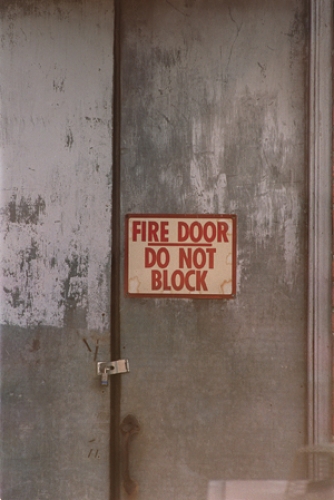A Southern Tragedy, in Crimson and Yellow. By Lawrence Naumoff. Zuckerman Cannon Publishers, 244 pages, $14.00.
Some of us grow up like Ellie McCorkle.
We grow up with dreams of attending college, writing a book, and finding financial stability. But we are like “the driver of a speeding car that had lost traction and was sliding sideways on the road.” It’s a world where the doors of opportunity seem never to open; we are locked into a life we merely survive. And we believe Ellie’s words: “I don’t see how I’ll be anything else.”
So when some of us end up working in a chicken-processing plant like Ellie, making less than $750 a month, we let our dreams fade. But — whether out of pride, dignity, or desperation — we show up to work every day and we do our jobs.
That’s why Ellie was working that day when a fire broke out inside the plant. And, she found herself trapped behind locked doors.
Though Ellie is a fictional character in Lawrence Naumoff’s latest novel, A Southern Tragedy, in Crimson and Yellow, factual accounts shape her and Naumoff’s story, which traces a family of women in Hamlet, North Carolina, from the prosperous merchants of 1919 to the chicken-plant workers of 1991. The women’s lives parallel the history of Hamlet.
Those familiar with North Carolina history know the story of Hamlet, where on September 3, 1991, a hydraulic fuel line inside Imperial Food Products ruptured. A fire spread quickly throughout the plant, killing twenty-five people and injuring fifty-six.
Naumoff knew about fire. He had watched, in 1977, as a fire destroyed his farmhouse in Silk Hope, North Carolina. No one died during Naumoff’s fire, he says, but more than a decade later he still remembered the smell and the color of the flames. “It was beautiful, in a horrifying way,” writes Naumoff, an instructor in Carolina’s Creative Writing Program.
So, on that day in 1991, when Naumoff learned of the fire in the chicken plant, the images of the casualties and flames stayed with him.
Then, in October 2000, inspired by a Tom Wolfe lecture about social realism — of writers putting social conditions into narratives — Naumoff set out to discover how the fire happened and why.
He read hundreds of newspaper articles and government documents: about how the majority of the people who died probably did so because the plant’s managers locked the fire-safety doors to prevent workers from stealing; about what happens to the body when it’s burned and suffocated by smoke inhalation; and about the history of Hamlet, the Richmond County community known for its high-school football team, jazz musician John Coltrane, and once — in the early twentieth century — as the rail crossroads of the East Coast.
During the research, one question came to haunt Naumoff: “Why would someone work in a chicken plant in the first place?”
He lets Ellie answer that. And Ellie shows us how, through bad decisions, bad people, and bad luck, some of us end up with “dreams of a better life that just burn like single sheets of paper.” But, she also reminds us how some of us come to use our dreams to open the locked doors.
Cherry Crayton was formerly a staff writer for Endeavors.
Lawrence Naumoff will discuss A Southern Tragedy, in Crimson and Yellow on UNC-TV’s “North Carolina Bookwatch” with D.G. Martin on Sunday, October 30 at 5 p.m. For more information about “North Carolina Bookwatch,” visit www.unctv.org/pressroom/ncbookwatch/index.html.


